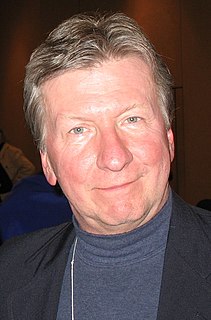A Quote by Robert Gottlieb
With literary fiction, generally a film maker falls in love with a book. In commercial fiction, it's a producer or studio falling in love with a book they can make into a movie with worldwide appeal.
Related Quotes
In general, fiction is divided into 'literary fiction' and 'commercial fiction.' Nobody can definitively say what separates one from the other, but that doesn't stop everybody (including me) from trying. Your book probably will be perceived as one or the other, and that will affect how it is read, packaged and marketed.
It remains a mystery to me why some of that [pulp] fiction should be judged inferior to the rafts and rafts of bad social [literary] fiction which continues to be treated by literary editors as if it were somehow superior, or at least worthier of our attention. The careerist literary imperialism of the Bloomsbury years did a lot to produce fiction's present unseemly polarities.
Literary science fiction is a very, very narrow band of the publishing business. I love science fiction in more of a pop-culture sense. And by the way, the line between science fiction and reality has blurred a lot in my life doing deep ocean expeditions and working on actual space projects and so on. So I tend to be more fascinated by the reality of the science-fiction world in which we live.






































